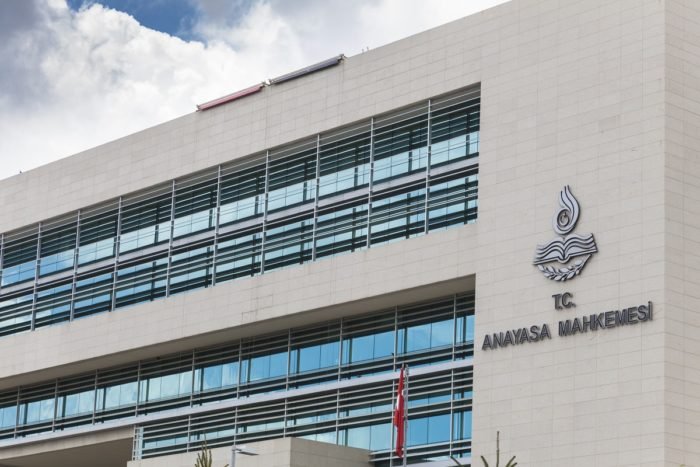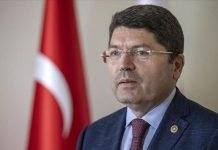Two lower courts have openly defied rulings of the Turkish Constitutional Court amid calls by Turkey’s president, Recep Tayyip Erdoğan, and his key ally Devlet Bahçeli, leader of the Nationalist Movement Party (MHP), to restructure the country’s highest judicial authority.
The İstanbul 14th High Criminal Court denied a petition by former Republican People’s Party (CHP) deputy Enis Berberoğlu for a retrial of his case based on a rights violation decision that was handed down by the Constitutional Court on October 9, 2020. The court’s decision said Berberoğlu should not have been tried due to his legislative immunity.
Yet, the lower court argued that the Constitutional Court’s decision fell within the scope of review of the merits of the case and hence there were no grounds for a retrial.
Speaking to the Habertürk daily, former rapporteur of the Constitutional Court Professor Osman Can said the Constitutional Court’s decision was based on a violation of the constitution and not about how the case was tried. “If I were the head of the Constitutional Court, I would file a criminal complaint with the İstanbul chief public prosecutor,” Can added.
Berberoğlu was initially sentenced to 25 years in prison in 2017 on espionage charges for providing the Cumhuriyet newspaper with a video showing weapons and ammunition hidden beneath camouflage composed of boxes of medicine in trucks bound for Syria. The trucks were stopped by Turkish gendarmes and led to a standoff between law enforcement officers and agents of Turkey’s National Intelligence Organization (MİT) who were escorting the consignment.
The İstanbul Regional Court of Appeals overturned the conviction in February 2018 and instead convicted Berberoğlu of disclosing confidential information, sentencing him to five years, 10 months’ imprisonment.
Berberoğlu was re-elected to parliament in the June 24, 2018 general election, after which the Supreme Court of Appeals accepted a request for a stay of execution of his sentence on the grounds of his legislative immunity and ruled that he be released.
In September 2018 the Supreme Court of Appeals approved Berberoğlu’s conviction and sentence. He was not rearrested due to his legislative immunity. Yet, on June 4, 2020 the General Assembly of the Turkish Parliament stripped him of MP status by citing his conviction. He was detained and arrested the next day. On the same day, he was released from prison as part of COVID-19 related measures.
Another local court defied a Constitutional Court decision that said graduates of law schools who were summarily dismissed from public service were entitled to practice law. The Ankara 12th Regional Administrative Court of Appeals ruled on October 1 that E.C., who was dismissed from public service, could not practice law.
Yet, the same court had decided only 20 days earlier that S.K., a former judge, could practice law. The Ministry of Justice had taken the matter to court and asked for the annulment of S.K.’s bar registration. According to the Birgün daily, the appointment of a judge who voted in favor of the decision that allowed S.K. to practice law to another court immediately after the ruling was the reason for two contradictory decisions in only three weeks.
On September 8, 2020 the Constitutional Court had ruled that there was no legal impediment barring former public servants summarily dismissed from their positions from practicing law.
Following a coup attempt on July 15, 2016, the Turkish government declared a state of emergency and launched a massive crackdown under the pretext of an anti-coup fight. Over 540,000 people were detained on terrorism-related charges, more than 80,000 were arrested or imprisoned and over 150,000 public servants, including 4,145 judges and prosecutors, were removed from their jobs for alleged membership in or relationships with “terrorist organizations.”
The local court decisions in defiance of Constitutional Court rulings came amid calls to restructure the country’s highest judicial authority. On September 30 MHP chairman and Erdoğan ally Bahçeli called for the restructuring of Turkey’s top court in line with a presidential system that was instated in 2018.
Erdoğan supported Bahçeli’s proposal on October 1, saying, “If the parliament decides on a new restructuring of the Constitutional Court, if such a step is taken, I would gladly approve of that.”
















